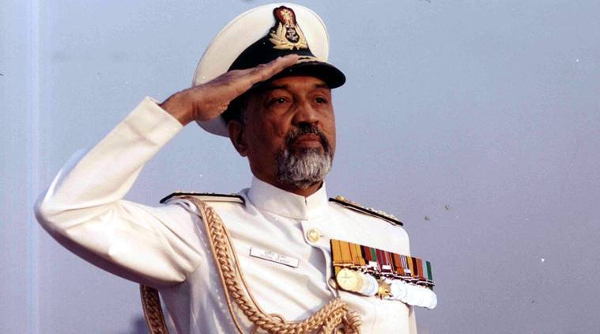Former Navy Chief Admiral Sushil Kumar, who headed the Navy during the Kargil war, passed away on Wednesday at the Army Research and Referral Hospital in Delhi due to illness. He was 79.
He served as Navy Chief from 1998 to 2001. He was appointed under dramatic circumstances. Admiral Vishnu Bhagwat had been sacked by the Government which then despatched a special plane to Kochi in Kerala to fly in Admiral Kumar, who was then heading the Southern Command of the Navy.
Prime Minister Narendra Modi condoled on Wednesday the death of former Navy chief Admiral Sushil Kumar (retd), saying he contributed towards strengthening the maritime security of the country. “Admiral Sushil Kumar will be remembered for his great service to the nation. He contributed to the strengthening of our maritime security. Anguished by his demise. May his soul rest in peace,” the Prime Minister’s Office tweeted quoting Modi.
Admiral Kumar had authored a book named ‘A Prime Minister to Remember — Memories of a Military Chief’ which highlighted the key defence-related decisions taken by Late PM Atal Bihari Vajpayee. He credited Vajpayee for turning the strategic tactical loss into a massive victory. Known for his strategic thinking, the Admiral had pushed for significantly expanding Indian Navy’s presence in the Indian Ocean Region. He was also part of the high-level group devising strategy during the Kargil war in 1999.
He was Chairman of the Chiefs of Staff Committee when India planned Operation Parakram in the wake of the terror attack on Parliament.
Image Courtesy: TIE
You may also like
-
IAF Aircraft Set Course For Exercise Eastern Bridge VII At Oman
-
IAF Set To Host The Indian Defence Aviation Exposition-II At Jodhpur
-
Defence Secretary to co-chair 5th India-Philippines Joint Defence Cooperation Committee meeting in Manila
-
Simultaneous Launch Of ‘malpe And Mulki’, Fourth And Fifth Ships Of Asw Swc (Csl) Project
-
Aatmanirbharta in Defence: MoD signs Contract with HAL for 240 AL-31FP Aero Engines for Su-30MKI Aircraft
